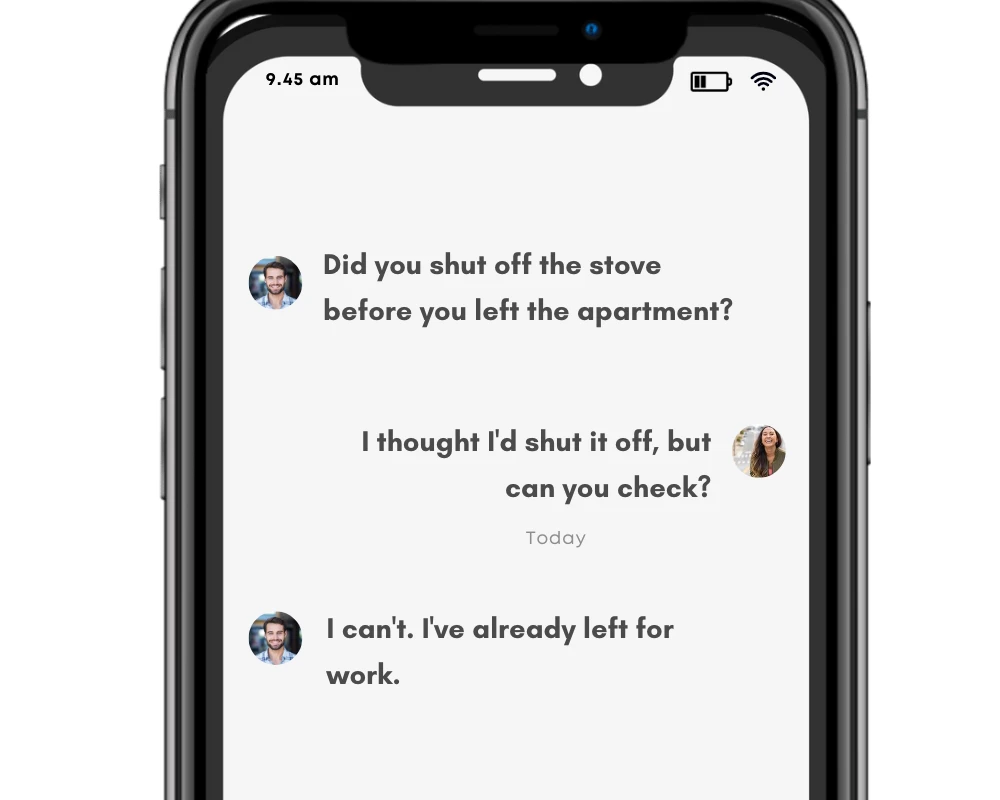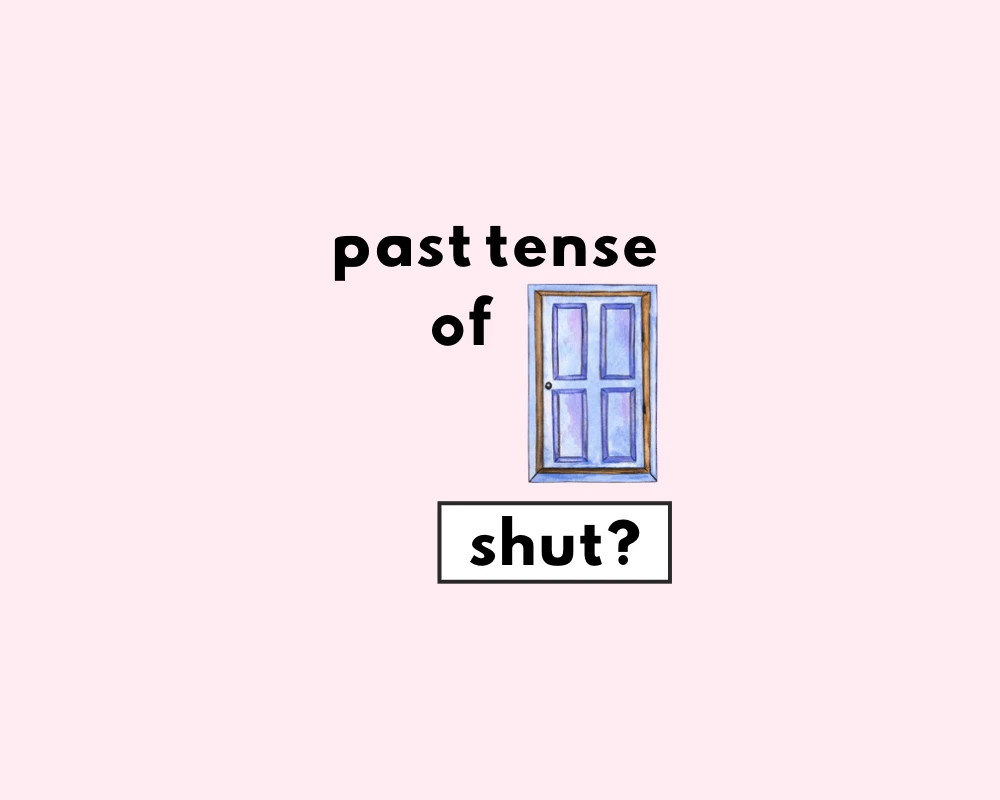
What’s the past tense of “shut”?
‘To shut‘ belongs to the category of irregular verbs with only one form. This means that shut stays as shut in the present tense, past tense and as a past participle. This makes shut an easy irregular verb to remember, relatively speaking.
I shut the door.
It shuts automatically.
Verb forms of shut
Let’s define the topic first. The verb shut, as described by Collins Dictionary, is when we “close something; to become closed.” Synonyms for shut include close or fasten.
| present | past | future | |
|---|---|---|---|
| simple | I shut | I shut | I will shut |
| continuous | I am shutting | I was shutting | I will be shutting |
| perfect | I have shut | I had shut | I will have shut |
| perfect continuous | I have been shutting | I had been shutting | I will have been shutting |
Remember to always pair participles with auxiliaries to create perfect and continuous tenses! Use ‘have’, ‘has’, or ‘had’ to form perfect tenses, and a form of ‘to be’ for continuous.
Sentences in the present
| Sentence | Form/Notes |
|---|---|
| The bank shuts at 4. | present simple |
| The window won’t shut. | present simple |
| The doors open and shut automatically. | present simple |
| It shuts automatically. | present simple |
Shut in the past tense
| Sentence | Form/Notes |
|---|---|
| Philip went into his room and shut the door behind him. | past simple |
| She shut her eyes and fell asleep immediately. | past simple |
| He shut his book and looked up. | past simple |
| She decided to shut her ears to all the rumours. | past simple (infinitive + shut) |
Shut as a past participle
| Sentence | Form/Notes |
|---|---|
| They have warned residents to stay inside and keep their doors and windows shut. | present perfect passive |
| The exit doors were locked shut. | past participle (adjective use) |
| I’ve made this trip so often, I could do it with my eyes shut. | modal + past participle |
| He had shut his book and looked up at her into her eyes. | past perfect |
Irregular verbs (with one past tense conjugation)
| base verb | past tense | past participle |
|---|---|---|
| cut | cut | cut |
| burst | burst | burst |
| bet | bet | bet |
| shut | shut | shut |
| hit | hit | hit |
| set | set | set |
Origin of the word shut
| Origin | Middle English shitten, sheten, “close (a door, window, gate, etc.); lock, fasten closed,” from Old English scyttan “to put (a bolt) in place so as to fasten a door or gate, bolt, shut to; discharge, pay off,” from West Germanic *skutjan. |
Commonly confused verbs
Worksheet
According to the blog post, what is the simple past tense of the verb “shut”?
What category of verb does “shut” belong to, as discussed in the post?
Which of these verbs is mentioned in the post as following the same irregular pattern as “shut” (one form for base, past, and past participle)?
What form of “shut” is used as the past participle?
How can you often identify the past participle form of “shut” in a sentence, according to the post?
Fill in the blank with the correct simple past form of “shut”: She _______ her eyes and fell asleep immediately.
Fill in the blank with the correct past participle form of “shut”: By the time I arrived, they had already _______ the store.
Fill in the blank with the correct simple past form of “shut”: He quickly _______ the window to keep the rain out.
Fill in the blank with the correct past participle form of “shut”: She couldn’t open the box because someone had _______ it tightly.
Fill in the blank with the correct form: I wish I hadn’t _______ my mouth! (using the past participle form of “shut”)
FAQs
What is the past tense of ‘shut’?
+
Is ‘shut’ a regular or irregular verb?
+
What are the verb forms of ‘shut’?
+
How is ‘shut’ used in past tense examples?
+
Is ‘shutted’ the past tense of ‘shut’?
+
Sources
- “Shut.” Merriam-Webster.com Dictionary, Merriam-Webster, https://www.merriam-webster.com/dictionary/shut. Accessed 21 Feb. 2023.
Yash, D. "What’s the Past Tense of Shut? Shut or Shutted?." Grammarflex, Jun 25, 2025, https://www.grammarflex.com/whats-the-past-tense-of-shut-shut-or-shutted/.










